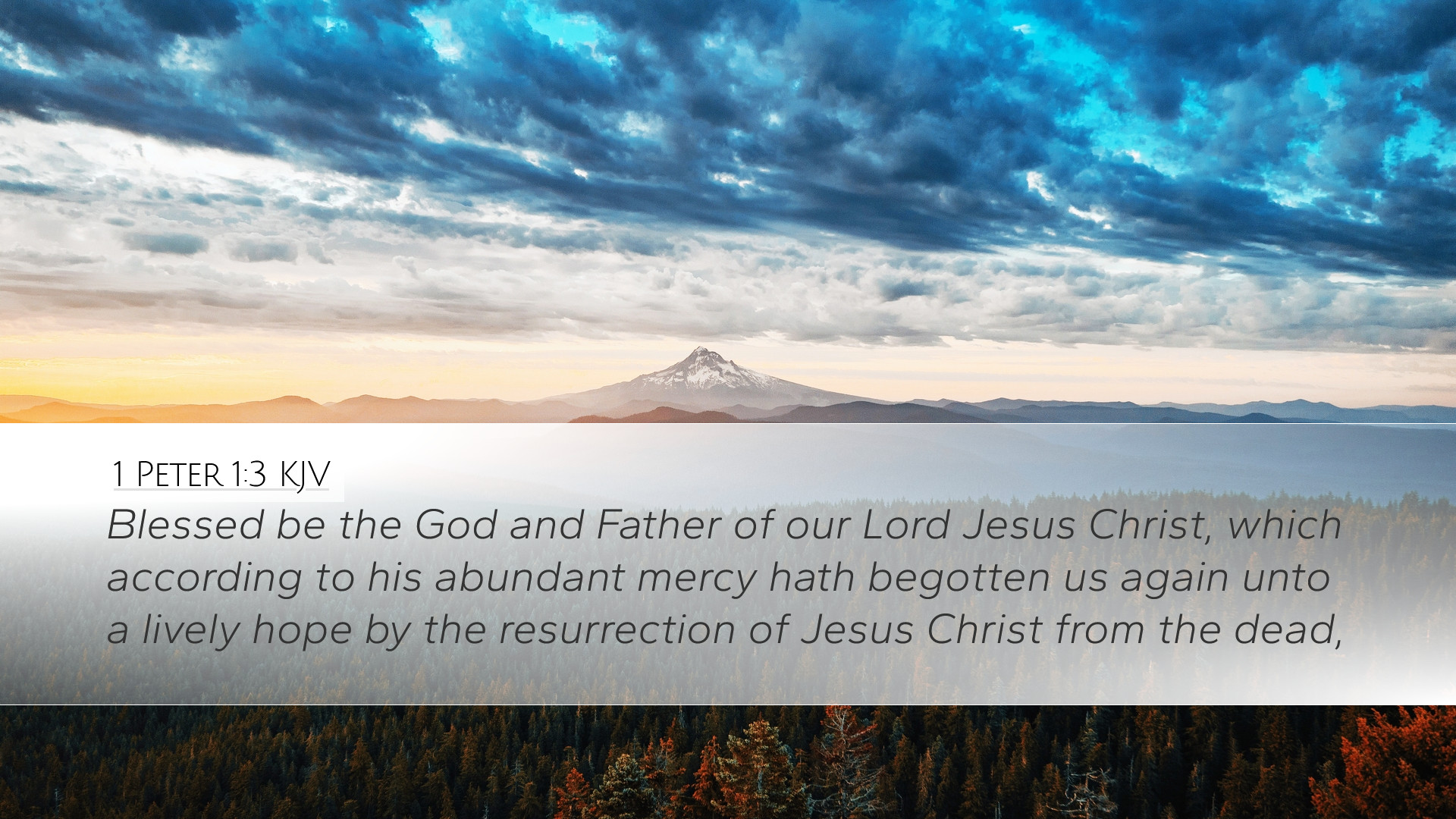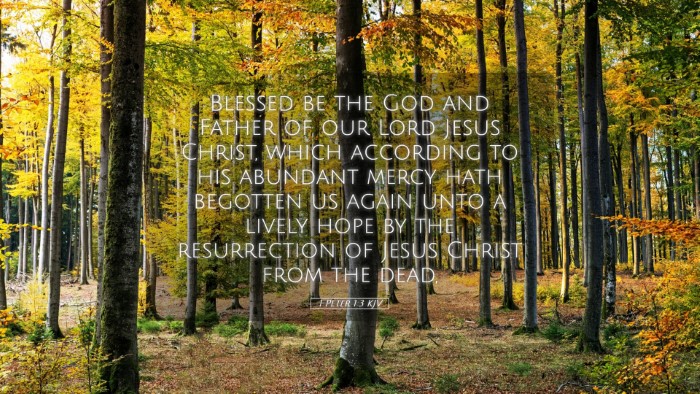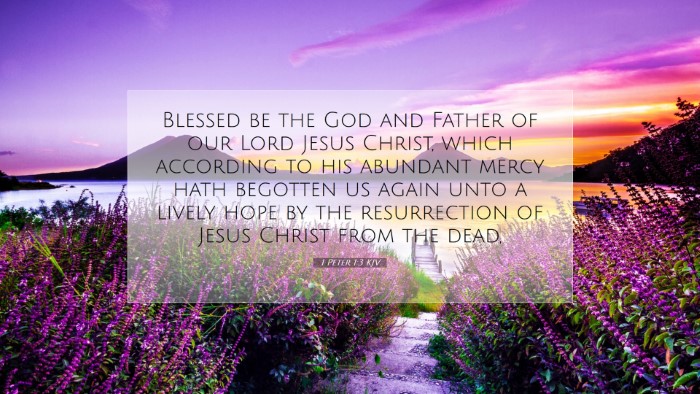1 Peter 1:3 - Commentary
Verse: "Blessed be the God and Father of our Lord Jesus Christ, which according to his abundant mercy hath begotten us again unto a lively hope by the resurrection of Jesus Christ from the dead."
Overview
This verse serves as a profound theological declaration from the Apostle Peter, establishing the foundation of Christian hope centered in the resurrection of Jesus Christ. It encapsulates themes of divine mercy, regeneration, and the hope that believers possess through the work of Christ.
Insights from Public Domain Commentaries
Matthew Henry's Commentary
Divine Blessing: Matthew Henry emphasizes the importance of ascribing praise to God for His mercies. He highlights that 'Blessed be the God' is an acknowledgment of God's inherent goodness and grace. Henry articulates that our worship begins with recognizing the nature of God as the Father of our Lord Jesus Christ.
Abundant Mercy: The phrase 'abundant mercy' is significant, for it suggests that God's mercy is not merely sufficient, but superabundant. He expresses that it is through this mercy that believers experience regeneration, transforming their state and relationship with God.
Born Again to a Lively Hope: Henry elaborates on the concept of being 'begotten again,' interpreting it as a spiritual rebirth resulting from the resurrection of Christ. This rebirth ushers believers into a 'lively hope,' suggesting an active and invigorating expectation of eternal life and glory.
Albert Barnes' Notes on the Bible
Hope Based on Resurrection: Barnes discusses how the resurrection of Jesus is central to the Christian hope. He articulates that the resurrection not only confirms Jesus’ identity as the Messiah, but also assures believers of their own future resurrection, which is fundamental to the Christian faith.
The Role of Mercy in Regeneration: In Barnes' view, God's mercy is the impetus for spiritual regeneration. He avers that without God's mercy, humans are spiritually dead, and it is through His intervention that they are experienced into new life.
Adam Clarke's Commentary
Praise to God: Clarke emphasizes the importance of blessing God in response to His grace. He notes that Peter’s doxology reflects a core aspect of Christian worship—acknowledging God’s role in salvation.
Living Hope Explained: Clarke offers a detailed analysis of what it means to have a 'lively hope'. He posits that this hope is not passive; rather, it invigorates the believer to live in light of eternity. It shapes their actions and attitudes towards life and suffering.
Connection to Suffering: Clarke also connects this hope to the themes of suffering that permeate the epistle. He suggests that the hope derived from the resurrection empowers believers to endure trials and tribulations with a perspective rooted in eternity.
Theological Implications
- Nature of God: The description of God as 'the God and Father of our Lord Jesus Christ' underscores the relational aspect of God in the context of salvation. It conveys a deep intimacy and paternal relationship that believers enjoy.
- Hope in Resurrection: The resurrection of Jesus becomes the cornerstone of Christian hope, affirming not only Christ's victory over death but also the promise of eternal life for believers.
- Regeneration and New Life: The act of being 'begotten again' signifies the transformative power of the Gospel. It teaches the necessity of being spiritually reborn to experience true hope.
- Mercy as a Central Theme: The prominence of God's mercy highlights the unmerited favor that believers receive. It underscores the belief that salvation is not based on human works but solely on divine grace.
Practical Applications
1 Peter 1:3 encourages believers to:
- Worship: Regularly offer praise to God, recognizing His mercy and grace in their lives. Worship should be an outflowing response to understanding God's goodness.
- Embrace Hope: Actively cling to the hope that comes from the resurrection, allowing it to shape their responses to life's challenges.
- Communicate Mercy: Reflect God's mercy in their relationships with others, fostering a community of grace and forgiveness.
- Live Changed Lives: Understand that being born again signifies an ongoing transformation. They should pursue holiness and live in a manner that reflects their new identity in Christ.
Conclusion
1 Peter 1:3 serves as a strong reminder of the foundational truths of the Christian faith. It articulates the profound relationship between divine mercy, regeneration, and hope. For pastors, students, theologians, and scholars, this verse not only offers a deep well of theological insight but also provides practical applications for nurturing spiritual vitality in themselves and their communities.


